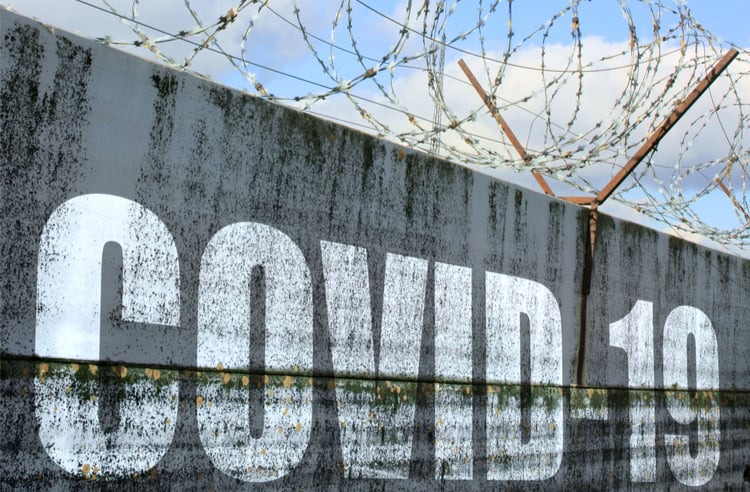Delayed justice is still a problem after COVID-19 disruptions

Image from Shutterstock.
The justice system continues to feel the effects of the COVID-19 pandemic nearly two years after courthouses first began closing and limiting operations, according to a Washington Post report.
Most courthouses have reopened, although they may not have resumed full activity. But legal officials say they expect delayed cases to continue to have an impact—and that’s assuming that courts don’t have to close again because of omicron or another new variant, according to the Washington Post.
The average backlog in state and local courts, in both civil and criminal cases, has increased by about one-third, the Washington Post said, citing a survey released in August by the Thomson Reuters Institute.
The Washington Post story focused on delays in the criminal justice system.
“District attorneys face some of the longest case backlogs in living memory,” the newspaper reports. “Defendants languish in jails that have become breeding grounds for the coronavirus. Others are set free—and, some prosecutors say, may be contributing to a spike in violent crime that is only compounding the pileup.”
The Washington Post cited the example of Darrell Brooks, who was released on $500 bail in Wisconsin when there was no courtroom available to try him on a charge of allegedly firing a gun at his nephew. He was then accused of trying to run over the mother of his child with his car, but an overburdened junior prosecutor requested only $1,000 bail, resulting in Brooks’ second release.
Days later, prosecutors say, Brooks drove his car into a Christmas parade in Waukesha, Wisconsin, killing six people.
Milwaukee District Attorney John Chisolm told reporters that the incident stemmed from an overburdened justice system.
“This is a system issue right now, and it’s only going to get worse,” Chisolm said. “These backlogs aren’t going to magically disappear.”
The backlog in Milwaukee County is about 1,700 felony cases and about 3,100 misdemeanor cases.
Another reason for a rise in violent crime may be that police officers don’t want to make arrests that put people into a system that is already backed up, according to Erie County, New York, District Attorney John J. Flynn, who is the incoming president of the National District Attorneys Association.
“You don’t want to keep dumping water in a clogged sink,” Flynn told the Washington Post. “So there are fewer and fewer arrests, and more potential for people who are a danger to our society to be out on the streets.”
Write a letter to the editor, share a story tip or update, or report an error.


